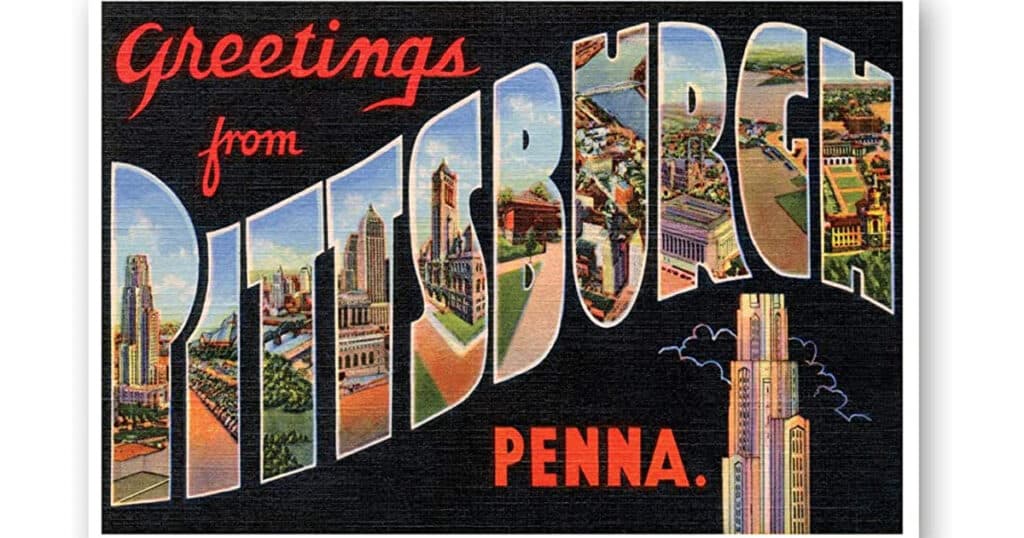
Is Pittsburgh a Blueprint for Other Union-Dominated Blue Cities?
In 2021, Ed Gainey was elected mayor of Pittsburgh. His campaign was funded in part by SEIU Healthcare Pennsylvania, which made a generous $350,000 donation – more than all other contributors combined.
SEIU Healthcare PA knew what it was paying for when it made this investment – a strong bargaining chip to force the city’s largest employer, University of Pittsburgh Medical Center (UPMC), to unionize its employees. SEIU Healthcare has had its sights set on UPMC employees for more than a decade but has so far been unable to close the deal with its prospective members.
Thanks to the union’s generous investment in Mayor Gainey’s campaign, however, its luck at UPMC may change, bringing in thousands of new dues-payers to line the union leaders’ coffers.
SEIU leaders now hold key posts in Mayor Gainey’s administration. Silas Russell, SEIU Healthcare executive vice president and political director, co-chaired Gainey’s transition team. Maria Montano, former SEIU Healthcare communications director, is now Gainey’s press secretary. And Lisa Frank, former SEIU vice president and director of strategic communications, is now the city of Pittsburgh’s chief operating officer.
Emails uncovered through right-to-know requests by CBS Pittsburgh reveal that Russell provided the mayor with union-generated talking points ahead of a meeting last year with UPMC officials.
What does all this mean for Pennsylvanians who rely on UPMC for their medical services?
After talks between UPMC and Gainey’s office broke down when the hospital rebuffed SEIU’s unionization efforts, the mayor has declined to attend any UPMC construction or opening events – a not-so-subtle display of hostility against one of the largest employers in the Commonwealth.
Gainey has also walked away from a $40 million commitment from UPMC to fund city initiatives such as public works and maintenance projects.
“That’s a big number we’re leaving on the table right now,” said Pittsburgh City Controller Michael Lamb. “And we can’t just walk away from that. On behalf of the citizens and taxpayers of this town, we’ve got to engage, and we’ve got to have conversations and continued conversations with our largest employer.”
According to Frank, “The union’s job is the union’s job and the mayor’s job is the mayor’s job.” But aren’t they really one and the same when the mayor was bankrolled by the union and seems to be doing its bidding, even at the expense of his own constituents?
Could Gainey be trying to help make up for public-sector union losses by forcing SEIU unionization on a large regional hospital that has rejected it for years?
While it’s not clear who will prevail between the mayor/SEIU Healthcare PA and UPMC, the clear winners are not the taxpayers of Pittsburgh, who likely just want a well-run healthcare center without more bureaucracy or union mandates getting in the way of their medical needs.
Unions have been targeting other big-city elections in order to exert power over their cities’ public works institutions and to push unionization among city employees.
In early April, Chicago elected a proud Chicago Teachers’ Union (CTU) operative – Brandon Johnson – as its new mayor. CTU pumped in a historic $2.3 million to get Johnson elected, and he’s already denounced school choice and charter schools, while working to end a program that provides education-choice scholarships to low-income students.
On election night, the newly elected mayor was introduced at his own victory party by CTU president Stacy Davis Gates. American Federation of Teachers (AFT) president Randi Weingarten tweeted, as she is wont to do, that “the impossible became possible” in praise of their newly installed agent.
Now, the Philadelphia mayoral race is heating up between the remaining Democratic primary challengers, each parroting Big Labor talking points about expanding unionization for hourly employees, bragging about their use of unionized labor in their own private-sector careers, and promising to be champions for unions and protect Philadelphia as a “union city”.
It appears that each mayoral prospect in Philly’s Democratic primary promises a victory for unions. If Pittsburgh is any indication, taxpayers – and those desperately in need of vital services – won’t be the winners.
This article was originally published by RealClearPennsylvania and made available via RealClearWire.


